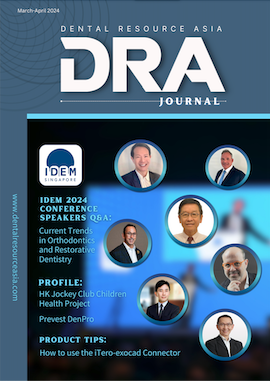CHINA: Researchers from Sichuan University, China, have conducted a significant study examining the intricate connection between edentulism, chewing difficulties, and depression among middle-aged and older individuals.
The study, titled “Chewing Difficulties Mediate the Association Between Edentulism and Depression Among Middle-Aged and Older Individuals,” was published in the Journal of Oral Rehabilitation.
Unveiling the Link: Edentulism and Depression
The study sought to unravel the relationship between edentulism and depression, prevalent health concerns among the aging population. Previous research indicated edentulism as a risk factor for depression, yet the nuances of this link remained unclear.
 Click to Visit website of India's Leading Manufacturer of World Class Dental Materials, Exported to 90+ Countries.
Click to Visit website of India's Leading Manufacturer of World Class Dental Materials, Exported to 90+ Countries.
The research, utilizing data from the China Health and Retirement Longitudinal Study, delved into the mediating role of chewing difficulties in the association between edentulism and depression. The study included 15,853 individuals aged 45 years and older, with propensity score matching employed to balance characteristics between those with and without edentulism.
Chewing Difficulties as a Mediator
After meticulous analysis, the study revealed that individuals with edentulism had a significantly higher prevalence of depression. The causal mediation analysis demonstrated that chewing difficulties played a moderate mediating role in this association. The average mediation effect of chewing difficulties on the link between edentulism and depression was found to be 11.7%.
The findings underscore the importance of recognizing chewing ability as a fundamental aspect of oral health, especially among the aging population. Encouraging routine dental care utilization is highlighted as a supplemental benefit for not only maintaining good chewing ability but also improving the mental health of older individuals.
Addressing Fundamental Oral Function
As the study suggests, a higher prevalence of edentulism is correlated with a higher rate of depression. The understanding that chewing difficulties play a mediating role in this association emphasizes the need to prioritize fundamental oral function in healthcare strategies aimed at enhancing mental health among the aging population.
In conclusion, this research sheds light on the intricate interplay between oral health and mental well-being, urging healthcare providers to consider comprehensive approaches that address not only edentulism but also the associated chewing difficulties for a holistic improvement in the mental health of middle-aged and older individuals.
Read the full article: Chewing Difficulties Mediate the Association Between Edentulism and Depression Among Middle-Aged and Older Individuals
The information and viewpoints presented in the above news piece or article do not necessarily reflect the official stance or policy of Dental Resource Asia or the DRA Journal. While we strive to ensure the accuracy of our content, Dental Resource Asia (DRA) or DRA Journal cannot guarantee the constant correctness, comprehensiveness, or timeliness of all the information contained within this website or journal.
Please be aware that all product details, product specifications, and data on this website or journal may be modified without prior notice in order to enhance reliability, functionality, design, or for other reasons.
The content contributed by our bloggers or authors represents their personal opinions and is not intended to defame or discredit any religion, ethnic group, club, organisation, company, individual, or any entity or individual.


